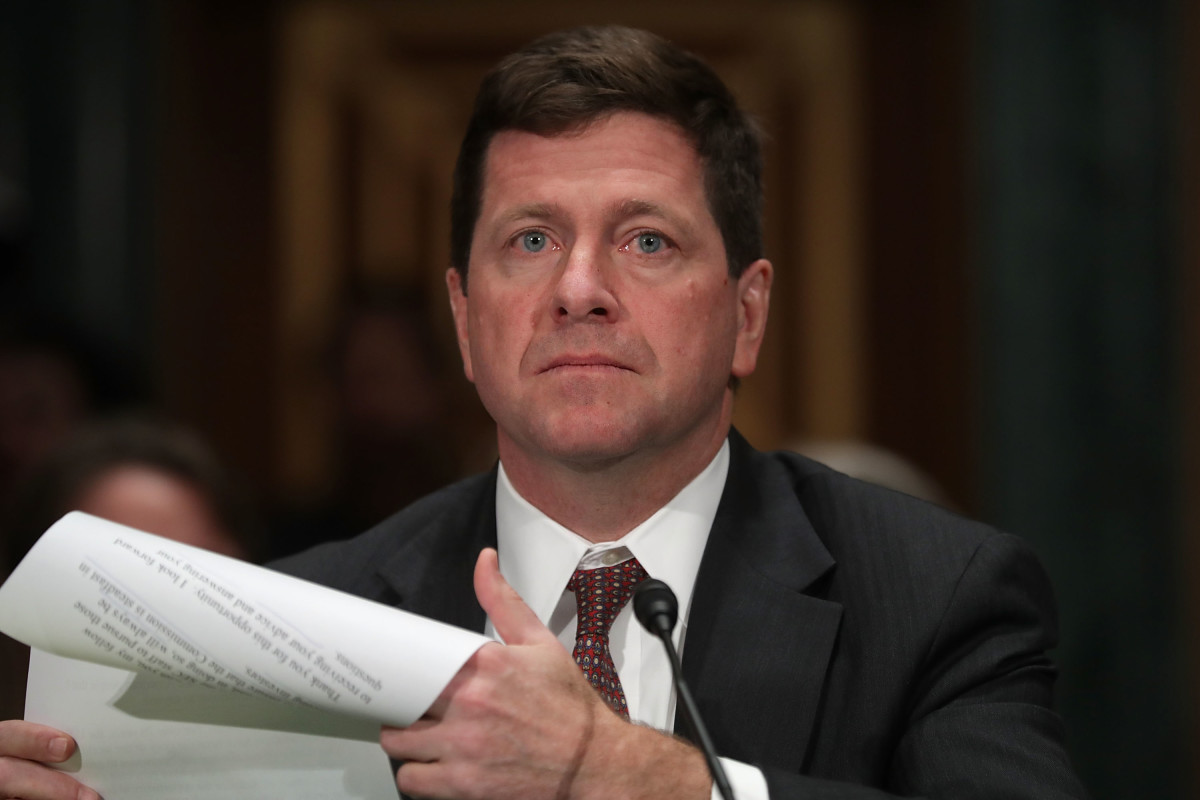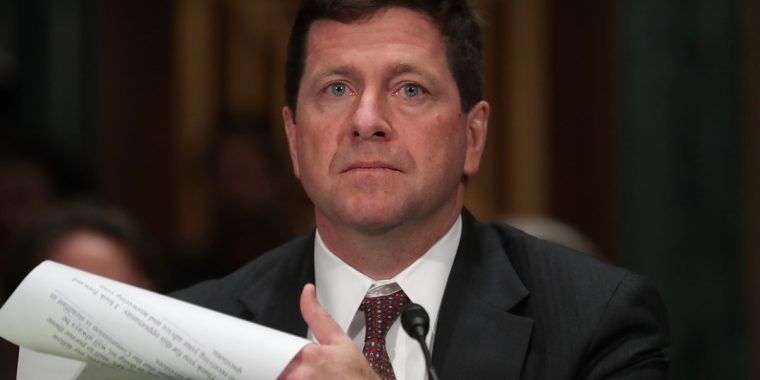
The regulatory bonfire promised at the advent of the Trump administration never really became the out-of-control conflagration out of which the phoenix of 19th century lasseiz-faire capitalism would reemerge. And now, it probably never will: Even if the president manages to find a way to win reelection, he and his hand-picked lieutenants have for three-and-a-half years demonstrated an incompetence and laziness-based inability to focus on anything long enough to really destroy it. And so the administration whose leader came into office promising to “do a big number” on Dodd-Frank has only now gotten around to gutting the central part of that rule, part of a late-breaking realization on the part of his appointed deregulators that time is perhaps not on their side.
Unlike Joseph Otting or Kathy Kraninger, however, Jay Clayton never really fit the mold of the tear-it-all-down Trumpian regulatory appointment. He seemed content to more or less sit back and do nothing as chairman of the Securities and Exchange Commission, which is, in fairness, a very effective approach to financial services regulation under Trump, which may explain why the president likes him so much. But even Clayton isn’t immune from the end-of-days enthusiastic fear and loathing running through Washington at the moment, and the great beneficiaries are those unseemly paper pushers always getting lucky, the hedge fund managers. In addition to spending much of the coronavirus pandemic defending hedgies from the slings and arrows of continental sorts, Clayton’s SEC has recently moved to get them more investors, cheaper market data and to safeguard their most powerful weapons in proxy battles. Now, he’s looking to free them of some paperwork.
Only groups with assets of more than $3.5bn will have to submit so-called 13F filings with the regulator — one of the few ways of tracking which stocks hedge funds are buying and selling. The current threshold is just $100m….
Allison Herren Lee, the SEC’s lone Democratic commissioner, said the proposal lacked “a sufficient analysis of the costs and benefits” and reduced transparency.
“This proposal joins a long list of recent actions that decrease transparency and reduce both the commission’s and the public’s access to information about our markets,” she said in a statement.
Uh, yea, Allison: That’s the point. That it will also deprive lazy journalists and bloggers a quarterly source of some super easy if highly misleading copy is an added bonuses. And since Clayton will apparently be forced to stick around D.C. through the end of the year if he wishes to keep drawing a government paycheck, he might as well see this one through, as he has just enough time to do so.
The public has 60 days to submit comments to the SEC, after which commissioners will vote on a final proposal.
Most hedge funds to be allowed to keep equity holdings secret [FT]

